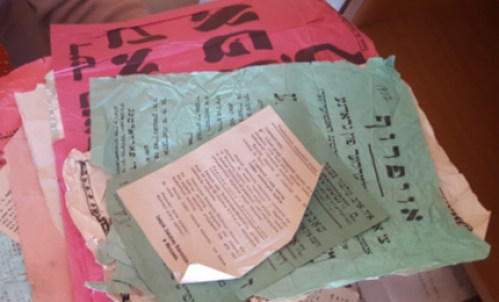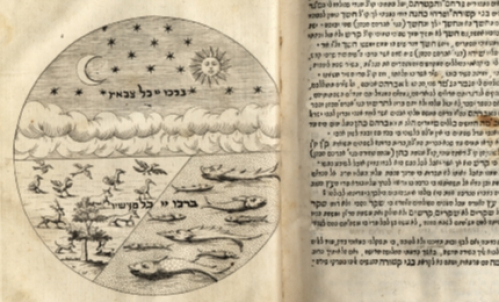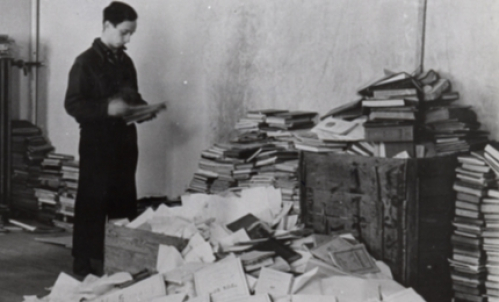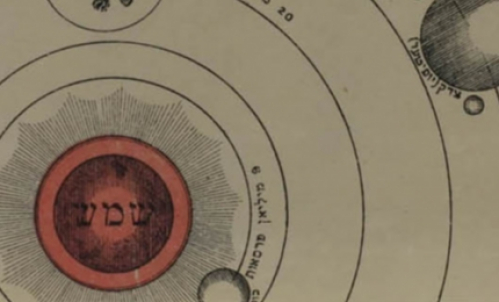A 16th-Century Document About Jewish Residence Rights in a Bavarian Town
by ROBERTA NEWMAN
YIVO is known for its extensive Yiddish collections, and indeed, the YIVO Archives and Library constitute the world’s greatest repository of Yiddish books and documents. But YIVO also has important materials on Jewish history and culture in many other languages, notably Russian, Polish, German, Hebrew, Ladino, and English.
YIVO is also primarily a repository for modern Jewish history. But among the mostly 19th- and 20th-century materials are older treasures, such as the Strashun Library, a major collection of rare, mostly Hebrew books, many from before the 19th century.
The Germany (Vilna Archives) Collection (RG 31) in the YIVO Archives is an illustration of both of these exceptions: the bulk of the materials are in German and many date from the 18th century or even earlier. The collection, part of YIVO’s archives in Poland before the war, has documents pertaining to Jewish life in Germany and, to a lesser extent, other German-speaking areas of central Europe (Austria, Bohemia, Moravia), from the 16th century until the beginning of the Second World War.
It includes papers of well over 100 German-Jewish individuals and families, including communal figures and rabbis, and fragmentary records of German Jewish communities, mostly from territories that had formerly been Polish lands and, after the First World War, became part of the Second Polish Republic (specifically, two communities in the province of Posen and one in Upper Silesia). These papers include minutes of meetings, by-laws, communal registers, financial records, correspondence, and printed matter.
The earliest document in the collection is this 1567 declaration by the Jewish brothers Borach and Schimell of Angelberg (now Tussenhausen), Bavaria, that having lived for several years under the protection of Conrad von Riedheim, he has granted them, upon their petition, permission to move elsewhere in seeking to make their living.
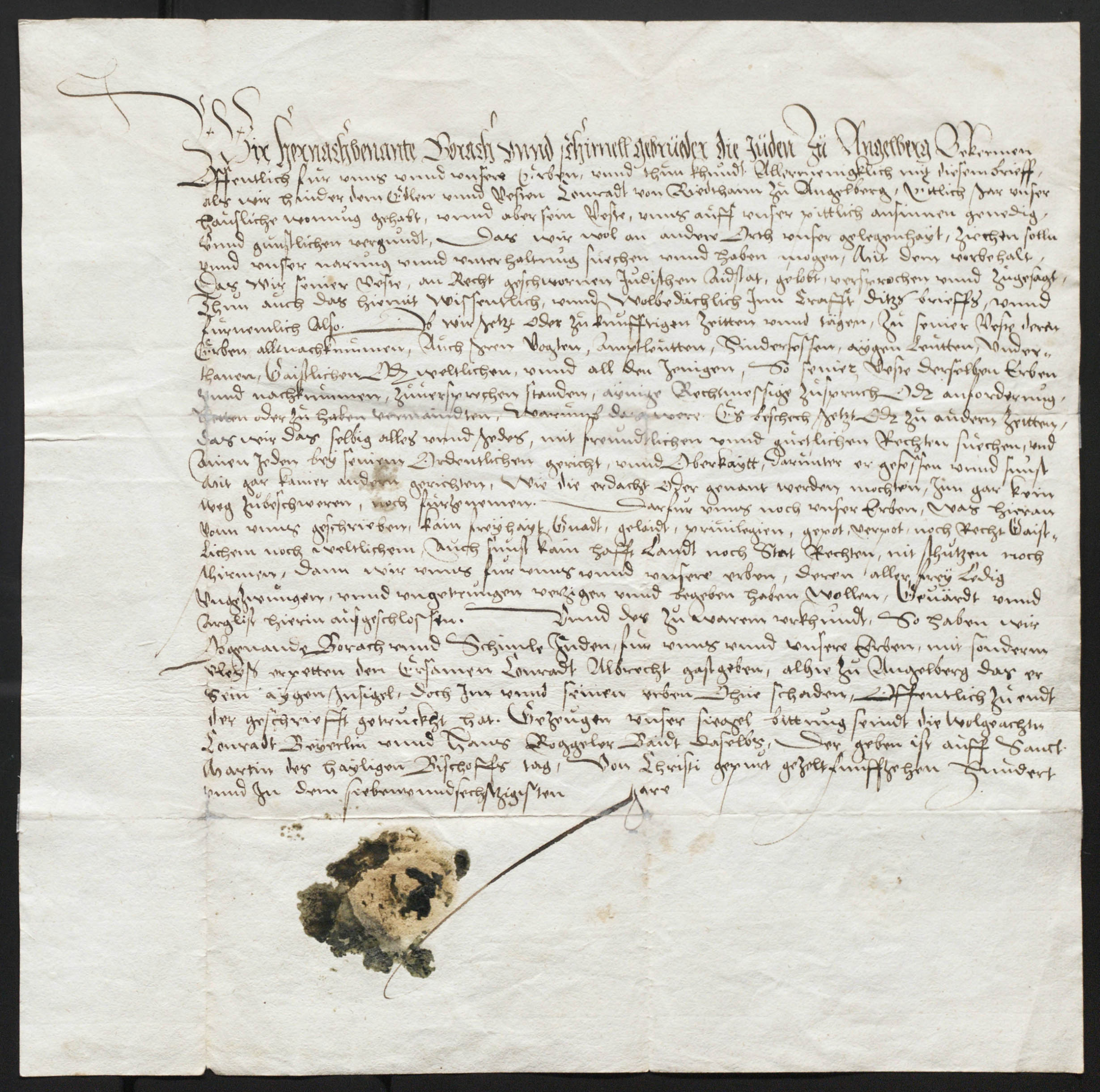
As Violet Lutz, the archivist who arranged the collection, notes in its finding aid:
Until the early 19th century, Jewish communities and individuals settled in the German lands by obtaining special permission, in the form of a charter, or a writ/letter of protection (Schutzbrief), which specified commercial privileges, religious rights, and such, in exchange for the payment of special taxes and fees. Such “protected” status was at first secured directly from the Holy Roman Emperor; later the emperor, for political and economic reasons, often transferred this function to the free imperial cities and territorial princes. Often Jewish settlement was welcomed in order to foster economic activity.
This document has been digitized for the Edward Blank YIVO Vilna Collections Project, a 7-year initiative to preserve, catalog, and digitize YIVO’s prewar collections in New York and Lithuania for presentation on a free-access website, which will launch later this year.
Roberta Newman is YIVO’s Director of Digital Initiatives.
